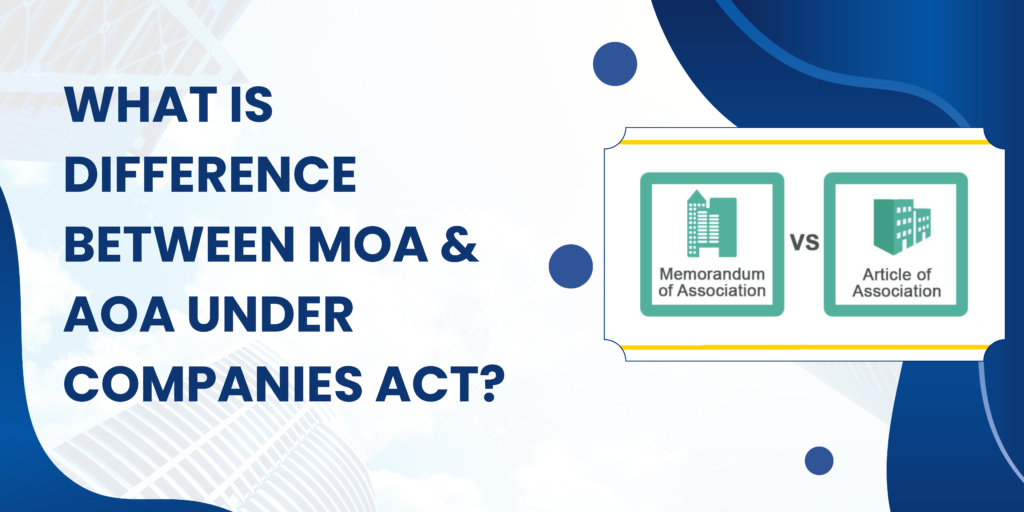
How to register a private limited company?
A private limited company or Pvt Ltd Company is a type of business model, in which two or more people come together (single person in one person company (OPC) to fulfil common business object through its unique identification. It’s a popular choice for many businesses due to its flexibility and limited liability protection to the directors of the company.
What is a private limited company?
A private limited company is a business entity that is privately owned and has its liability limited to the amount unpaid on its shares. The Private Limited company has its separate existence from its owners. The person who holds the share called as shareholder who are the ultimate owners of the company. The Person who manages the business called as directors of the company.
The shareholders and director can be same person but its not mandatory to be shareholder to become a director in private limited company.
Here are some key characteristics of private limited company:
- Limited Liability:
The liability of shareholders is only liable for the company’s debts up to the amount they have invested in the company through theirs shares. Their personal assets are protected from business liabilities.
- Ownership:
The company is owned by shareholders who hold shares in the company. Shareholding is usually limited to a specific number of people, and shares cannot be offered to the general public.
- Number of Directors:
The Private Limited Company shall at least two directors. The Maximum number of directors shall be 10 but it can be increased to 20 by approval from government.
- Number of Shareholders:
Private Limited Company must have a minimum of two shareholders and shall not exceed 200 shareholders.
- Share Capital:
The MCA has removed the minimum share capital requirement of registration of private limited company. Minimum authorized and subscribed share capital required for a private company having share capital is Rupees two.
- Separate Legal Entity:
The company is legally distinct from its owners and can enter into contracts, own property, and be sued in its own name.
- Number of meetings:
The Private limited Company shall atleast 4 board meeting and 1 General meeting Iin single financial year.
- Restrictions on Share Transfer:
Shares cannot be sold or transferred freely. Typically, existing shareholders must approve the transfer of shares, if existing shareholder denies to buy shares, the shareholder can sell it to outsider.
- Compliance Requirements:
The Private limited Company must comply with regulatory requirements such as filing annual financial statements, maintaining accurate records, and meeting statutory obligations.
- Name of the Firm:
The private limited company’s name must conclude with the words “Private Limited.”
Advantages of Private Limited Company
A Private Limited Company is most likely business structures for existing and new starups. It comes with several advantages and some disadvantages.
- Limited Liability:
The Liability of shareholders are restricted to the amount of share capital invested in the business. The personal asset of the shareholders is not attached for company liability.
- Separate Legal Entity:
A Private Limited Company possesses separate legal identity distinct apart from its members.
It has capacity to buy and hold asset its own names and to sue or to be sued his own name.
- Perpetual succession:
Perpetual succession means Private Limited Company has its own existence. The existence of the company shall not affect even after death of member or transfer of membership of company.
- Tax Benefits:
Private limited Company shall avail various tax benefits under the notification, MSME, StartupIndia & other government schemes.
- Raising Funds:
The Private Limited will get always priority in Raising Capital or loan from the Investors.
- Trust: The stakeholder shall always trust on private limited company for its management and working structure.
Disadvantages of Private Limited Company
- Heavy Complaiance:
The Complainces of the Private Limited Company are helavy and some costly due regular filing and reporting with various authorities of government.
- Limited Access to Capital:
Private Limited Company may have limited options for raising capital compared to public companies because it cannot sell shares to the general public.
- Restrictions on Transfer:
Restrictions on the transfer of shares can limit the liquidity of ownership to its shareholders.
Private Limited Company Registration Process
- Digital Signature Certificate (DSC): The Proposed directors shall acquire the Digital Signature Certificate before going the Company Registration Process.
- Choose a Name: Ensure it is unique and complies with MCA & trademark Regulations.
- Prepare Documentation: Draft the Articles of Association, Memorandum of Association, and details about directors and shareholders.
- Register with Authorities: Submit registration forms to the relevant company registry and pay any required fees.
- Obtain a Certificate of Incorporation: This confirms that the company is legally registered & you will get registration certificates.
- Register for Taxes: Apply for GST and other taxes if applicable.
- Open a Business Bank Account: Set up an account in the company’s name for financial transactions.
- Commencement of Business: File form 20-A within 180 days from registration of business.
- Post Incorporation Compliances: It includes the filling various form, maintain minutes and hold Board meeting and general meetings on due date.
Get more updates with csmk.in



